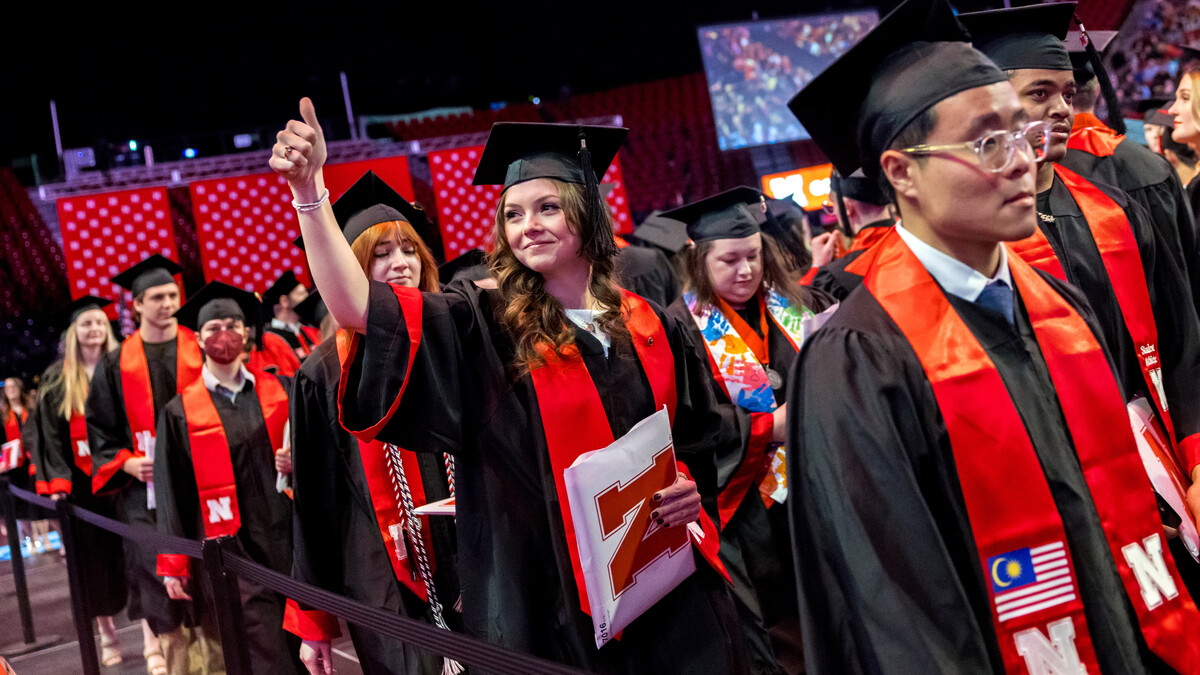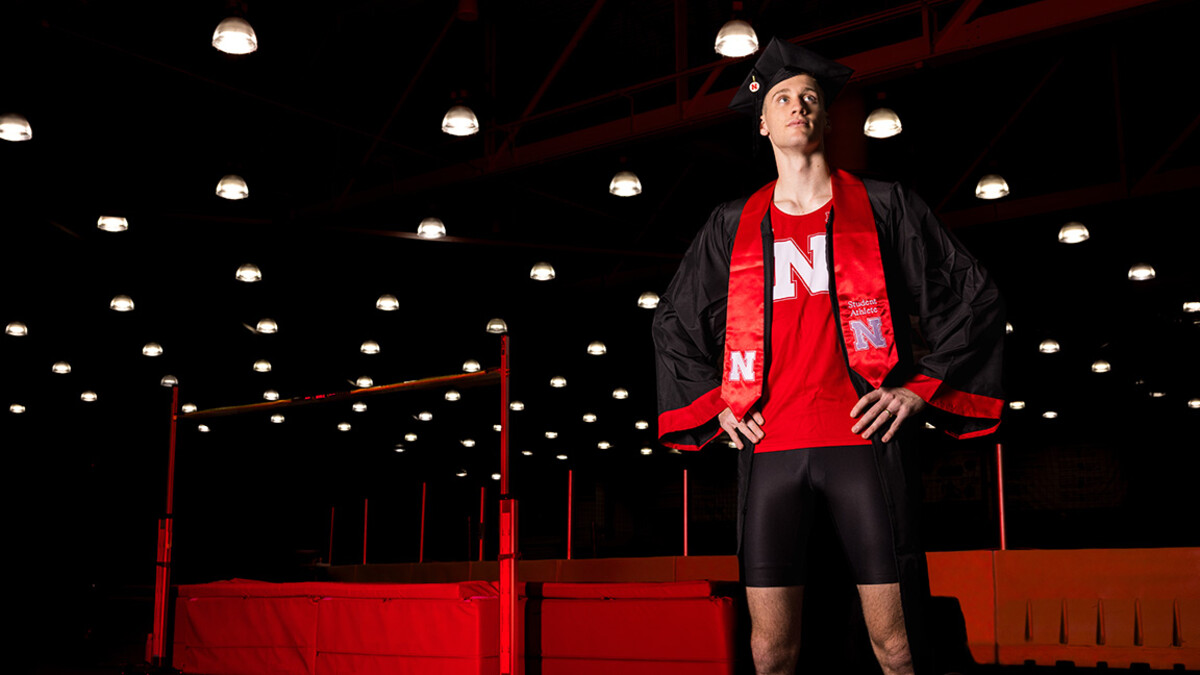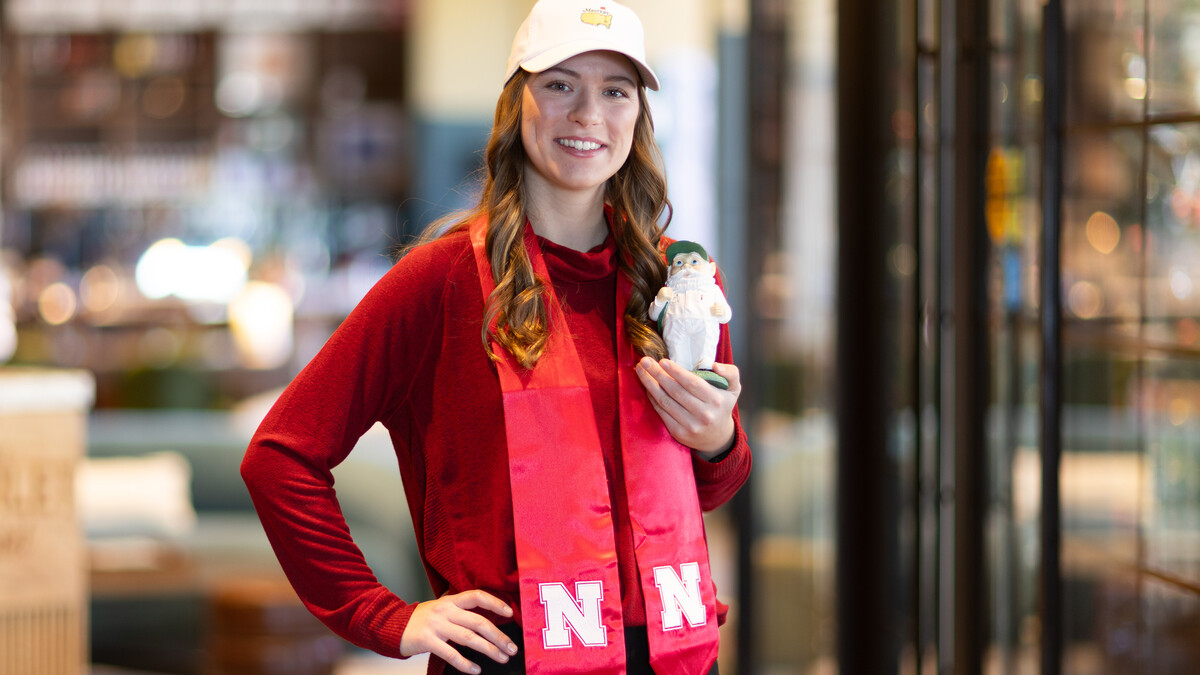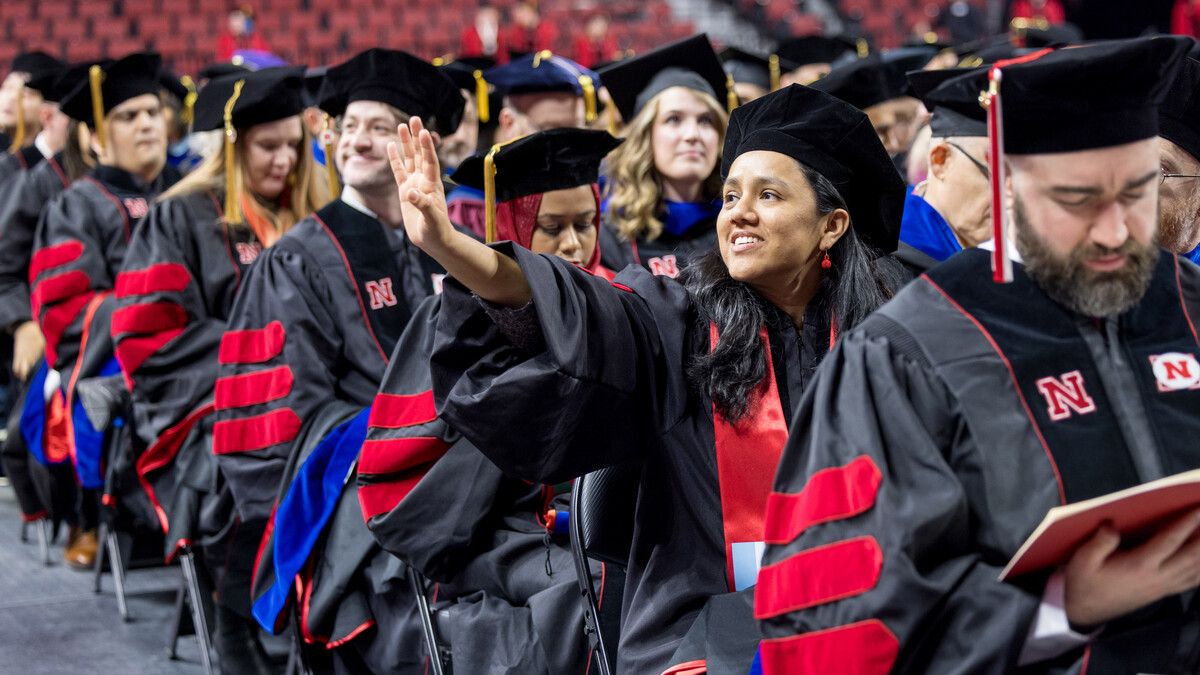
University of Nebraska–Lincoln faculty discussed two topics related to climate change in February: how to study particle physics in a climate emergency and how sorghum could help farmers adapt to widespread drought. The national news stories were among 25-plus featuring Husker faculty, staff, students, centers and programs during the month.
Ken Bloom, professor and chair of the Department of Physics and Astronomy, was interviewed for a Feb. 7 Symmetry article on a new white paper he co-authored detailing the ways that building and operating particle accelerators affect the environment — and how to mitigate those effects. “This has just become, literally, a much hotter topic in the world,” he said. “So to be able to contextualize this for particle physicists has been an interesting opportunity.”
Martha Mamo, Weaver Professor and chair of the Department of Agronomy and Horticulture, was interviewed for a Feb. 7 Civil Eats article on farmers turning to sorghum amid climate change. Mamo, who has done extensive research on sorghum production in Africa, said the crop is ideal for small-scale farmers there because it is drought-resistant. “When I think about the many farmers that I have interacted with in Ethiopia, they always think about risk aversion,” she said. “It could be a [farm-]saving crop.”
Additional national news coverage in February includes:
Paul Weitzel, law, was interviewed for a Feb. 1 Bloomberg Law article on a recent Delaware Chancery Court ruling that corporate officers can be held accountable by shareholders. “There is an overriding dispute between the Chancery and the (state) legislature at where the line should be for officers and directors in terms of bad behavior,” he said. “This is an expansion in the liability for officers while at the same time the legislature is reducing the amount of liability for officers, and that’s why this is such a weird and poorly timed decision.”
Congrui Grace Jin, civil and environmental engineering, has earned a $175,000 NASA Innovative Advanced Concepts grant to flesh out her idea for growing bricks on Mars. Her research “proposes that, rather than shipping prefabricated outfitting elements to Mars, habitat outfitting can be realized by in-situ construction using cyanobacteria and fungi as building agents.” CNN.com published a Feb. 4 article on the research.
Colleen Medill, law, was quoted in a Feb. 8 Washington Post investigation of how the NFL has avoided paying former players left disabled by their careers. The league has lost several federal court cases after former players sued, with one federal judge observing that the NFL appeared to have a strategy of denying full benefits to players disabled by severe head trauma. (This article requires a subscription.)
Robert Hutkins, food science and technology, was interviewed for a Feb. 8 Lead Stories fact check on a recent Instagram video claiming that people need “electric” and “magnetic” foods in their diets. “The notion that foods are magnetic and that they are electric … this notion about the distance from your body and the water content, there’s just no scientific support for making any of those statements,” Hutkins said. He described the claims as “nonsense.”
A 2015 study by the University of Nebraska–Lincoln was cited in a Feb. 9 Seattle Times article on two bills in the Washington Senate related to driver’s education courses. The study of more than 150,000 teen drivers found that taking a driver’s ed course decreased the risk of a serious or fatal crash by 24%.
The planned Heartland Robotics Cluster at Nebraska Innovation Campus was highlighted in a Feb. 9 Brookings article examining projects funded through the Economic Development Administration’s Build Back Better Regional Challenge. The College of Engineering, Nebraska Innovation Studio, Nebraska Manufacturing Extension Partnership and The Combine are part of the collaboration, which received a $25 million federal grant in September.
A note in the Clayton Yeutter archives at Nebraska was mentioned in a Feb. 10 Washington Post article on classified documents ending up in university libraries. The 1991 note was marked “eyes only” from President George H.W. Bush, but it dealt with Bush’s possible re-election plans, not state secrets, and would not be considered classified.
Kelli Boling, advertising and public relations, was quoted in a Feb. 14 Daily Mail article on the popularity of true-crime shows. American interest in true crime as a form of “infotainment” dates back to the early 1900s, the article stated. “Normally, these were women journalists that were writing these columns,” Boling said. “And mostly it was because they weren’t allowed to write on the news, and so they were allowed to write what was considered more of a fluff piece.”
Deirdre Cooper Owens, history, director of the Humanities in Medicine program, delivered a Feb. 6 Black History Month lecture at the Medical University of South Carolina, The (Charleston) Post and Courier reported Feb. 14. She discussed Harriet Tubman’s widely unknown contributions to the U.S. medical system.
Cooper Owens was also quoted in a Feb. 27 PBS News Hour story on Alabama artist Michelle Browder, who is working to correct the historical narrative around the beginnings of gynecology. Cooper Owens said 19th-century physician James Marion Sims’ avoidance of anesthesia on his enslaved subjects rested on a widely held stereotype that Black people don’t feel pain — something contradicted in his own work.
Midwest Messenger published a Feb. 8 article on the university’s Ag Budget Calculator. Glennis McClure, associate extension educator with Nebraska Extension, and Cory Walters, agricultural economics, gave a presentation on the calculator Jan. 26 during the Fremont Corn Expo.
John Anderson, Baird Family Professor of Economics, was interviewed for a Feb. 14 Wall Street Journal article on a plan to reform Detroit’s property tax system. He led a team of public finance experts that found that taxing land at a higher rate than buildings, known as split-rate property tax, would help revive the local economy and reduce tax bills for nearly every homeowner in the city. (This article requires a subscription.)
Patrice McMahon, political science, director of the University Honors Program, was interviewed for a Feb. 14 Voice of America article on Ukraine beginning its plans for post-war reconstruction. She said a major challenge for Ukraine will be making sure aid money that flows into the country doesn’t flow into the pockets of foreign aid workers, nongovernmental organizations, contractors and others. The story was picked up by 25-plus media outlets.
A Feb. 14 tweet from @UNLincoln was mentioned in a Washington Post roundup about the Feb. 13 fatal shooting at Michigan State University. The tweet, which features a Husker heart underneath the Spartans logo, reads: “Sending love and support to our Michigan State friends and all of Spartan Nation.” (This article requires a subscription.)
John Beghin, agricultural economics, was interviewed for a Feb. 16 Brownfield Ag News article on the potential impacts of Mexico’s biotech corn ban. Beghin said the United States has a reasonable case if the Biden administration files a trade dispute under the U.S.-Mexico-Canada Trade Agreement, though that process is complicated. He said that if the ban is permitted, it could disrupt global markets for several years.
Lawrence Chatters, executive associate athletic director for strategic initiatives, was featured on the Feb. 16 episode of Diverse’s In the Margins podcast. He discussed reducing the stigma around mental health and his unconventional ways of helping diverse students get the support they need.
Al Dutcher, associate Nebraska state climatologist, was quoted in a Feb. 21 Lead Stories fact check debunking a TikTok video claiming that “flesh-eating rain” was falling in Nebraska as a result of a toxic chemical spill from a Feb. 3 train derailment in East Palestine, Ohio. “I certainly haven’t heard that one,” he said. “In fact, I place the probabilities that rain falling here in Nebraska contains remnants of the train derailment chemicals at ZERO.” Dutcher pointed out that the accident site is hundreds of miles east of Nebraska and that weather systems move from west to east in the continental United States.
John DeLong, biological sciences, and colleagues have found that a species of Halteria — microscopic ciliates that populate freshwater worldwide — can eat huge numbers of infectious chloroviruses that share their aquatic habitat. For the first time, the team’s lab experiments have also shown that a virus-only diet, which the team calls “virovory,” is enough to fuel the physiological growth and even population growth of an organism. Quanta Magazine published a Feb. 21 article on the research.
Kelsy Burke, sociology, and Tyler Lefevor, assistant professor of counseling psychology at Utah State University, co-authored a Feb. 23 piece for The Conversation on how Utah provides clues to the recent wave of state legislative bills limiting trans rights. They pointed out that while Utah has passed laws like SB 16, which pauses all gender-affirming care while a “systematic review” takes place, it has also passed laws supporting LGBTQ rights. The article was picked up by 25-plus media outlets across the country.
The Iowa School for the Deaf’s cheerleading team — coached by Renca Dunn, a graduate student in communications studies at Nebraska — recently won the Great Plains School for the Deaf Cheer Championship. The team was featured in a Feb. 23 ABC News story.
The Husker volleyball team will play a regular-season match at Memorial Stadium as part of “Volleyball Day in Nebraska” on Aug. 30, Nebraska Athletics announced Feb. 24. The University of Nebraska at Kearney will face Wayne State College in an exhibition match at 4:30 p.m., followed by Nebraska versus the University of Nebraska at Omaha at 7 p.m. The event will conclude with a concert by an artist to be named later. Stories on the event appeared in 25-plus Nebraska media outlets, ESPN, Sports Illustrated and 150-plus other outlets.
Faculty, administration, student and staff appearances in the national media are logged at http://newsroom.unl.edu/inthenews. If you have additions to the list, contact Sean Hagewood at shagewood2@unl.edu or 402-472-8514. If you have suggestions for national news stories, contact Leslie Reed at lreed5@unl.edu or 402-472-2059.







